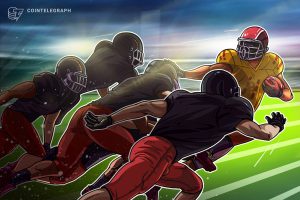Betting legal expert Daniel Wallach has claimed that states could use the federal wire act in their fight against sports prediction markets.
The Federal Wire Act of 1961 makes it illegal to “Knowingly use a wire communication facility for the transmission in interstate or foreign commerce of bets or wagers or information assisting in the placing of bets or wagers on any sporting event or contest.”
Operators such as Kalsh do not geofence users, so contracts, including those on sports events, can be traded nationwide.
Wallach believes this could be a point for state regulators to score victories against the prediction markets. He wrote, “The federal courts of appeal have uniformly held that the Wire Act applies to sports gambling activity over the Internet.”
And added, “Further, a court would likely find that Kalshi’s ‘sports-based’ event contracts are “bets or wagers” for purposes of the Wire Act.”
Are sports prediction markets legal?
It remains a big question. State regulators claim that prediction markets are betting and, therefore, require proper licenses. Six states sent cease-and-desist letters to Kalshi as well as Crypto.com and Robinhood.
Kalshi retaliated by suing the first states, Nevada and New Jersey. Then, a Nevada court ruled in favor of Kalshi, with a judge stating that the event contracts on sporting events are legal.
Yet, Wallach claims that if Nevada raises the Wire Act in the case, Kalshi could be in trouble.
The company has consistently marketed its sports prediction markets as legal betting. They have put out lines such as, “Betting on Kalshi, the first app for legal sports betting in all 50 states.”
But, in court, they continue to argue that they are a financial exchange, regulated by the Commodity Futures Trading Commission (CFTC). As they are regulated by the CFTC at the federal level, states are powerless. Wallach argues that the Wire Act does not differentiate between exchanges and sportsbooks.
He also says that the CFTC’s regulations can be used against Kalshi more efficiently by states. For example, the CFTC has a rule that prohibits events contracts that involve gaming or illegal activity because it is not in the public interest.
Wallach suggests, “That statement should be the opening sentence in every federal court brief filed by any state governmental agency sued by Kalshi.”
The Wire Act and also the Illegal Gambling Business Act could be used to show that the sports prediction markets are illegal under federal law if not state-regulated.
Prediction markets expanding
Kalshi has begun offering markets on NBA and MLB matches and trades higher and higher volumes at big sporting events. The expansion of markets mimics other operators that offer betting in a legal gray area, such as crypto sportsbooks, sweepstakes casinos, and other peer-to-peer exchanges.
It seems unsustainable for Kalshi, Crypto.com, and Robinhood to continue their expansion legally. If Wallach is to be believed, then states can use federal law to tackle the platforms.
Explore more articles like this
Subscribe to the Markets Outlook newsletter
Get critical insights to spot investment opportunities, mitigate risks, and refine your trading strategies. Delivered every Monday

Cointelegraph is a free to read website, by purchasing a product through affiliate links in our content, we may earn a commission at no extra cost for our readers. Which will allow us to finance our operations and continue with our research work for our readers. We ensure all recommendations go through in-depth editorial checks to maintain accuracy and quality. You can learn more about this on Content Guidelines and How We Rate pages.








